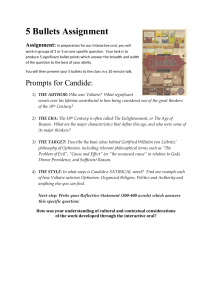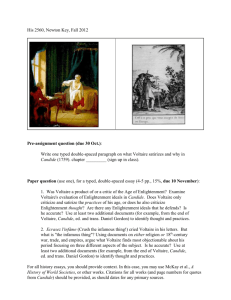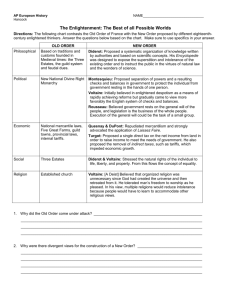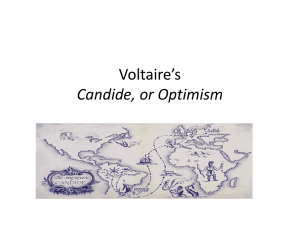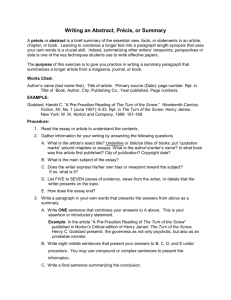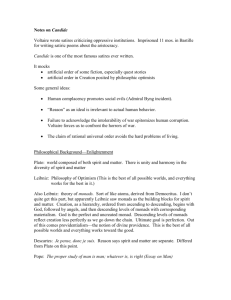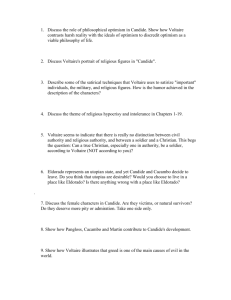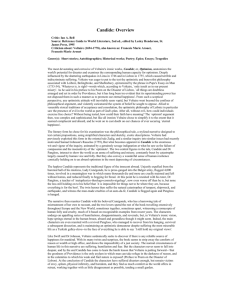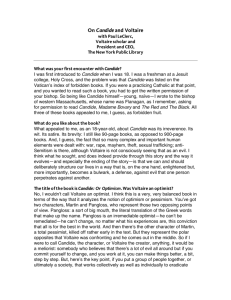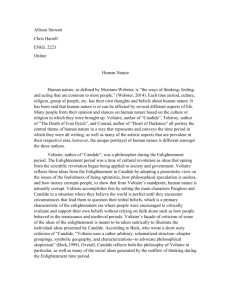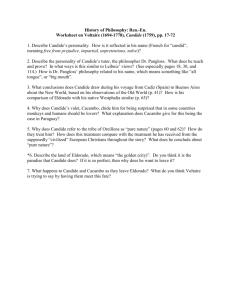Candide Intro
advertisement
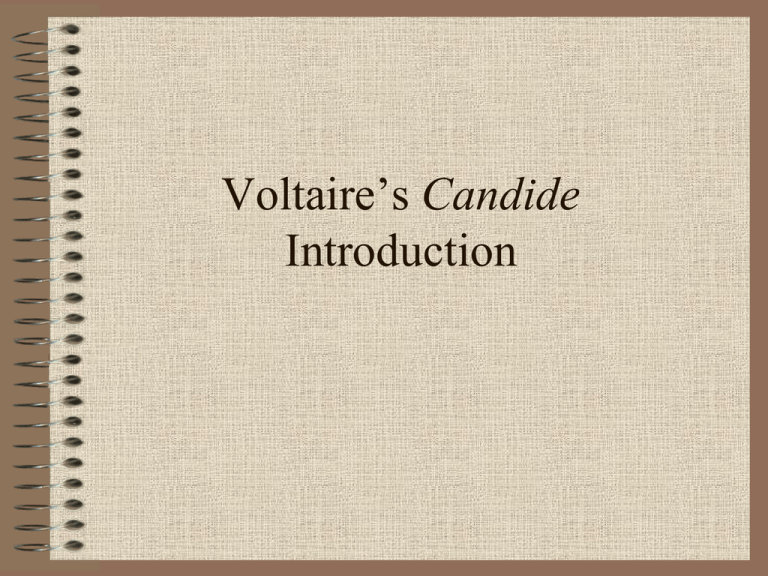
Voltaire’s Candide Introduction Enlightenment • 18th century • Emergence of scientific explanations for things, caused an overriding of superstition and religious beliefs • A time of skeptism and questioning of the world • Ideas on government and how to organize society began to develop Philosophical Questions of the Time • Why do bad things happen in the world? • What/where is the origin of evil? • If there is a god, does he control evil and good in the world? • Do men have free will or are they controlled by fate or an all-knowing god? Voltaire 1694-1778 • Voltaire was considered: practical, energetic, witty, charming, contemplative, highly intellectual, outspoken with a sense of humor • He didn’t just write, but acted on his ideals • Sent to prison for gentlemen – the Bastille - for 1 year because of inflammatory writing about Louis XIV’s regime • Known as one of the great liberal minds of the Enlightenment • Became famous for the phrase “ecrasez l’infame”, which translated means to “wipe out corruption in high places” • Spent most of his life in exile Topics of his writing • Voltaire wrote about: the evils of the church, philosophy, and politics • He revealed the hypocrisy and corruption of these institutions. Candide • Voltaire wrote Candide at age 65 in three days • Makes fun of the absurdities of the human race • Considered imaginative, subtle, witty, charming, touching at times, and extremely funny • Good example of “his power to knock mankind on his head and reassure him at the same time” Philosophical Tale • Very specialized genre quite popular in the 18th century ex. Gulliver’s Travels • Should not be read realistically, the purpose is not to present a verisimilitude of life (as in a novel) • Work of satire and parody • Intended to use humor to criticize a philosophical position Philosophical Tales test a certain philosophical position • Ex. Gulliver’s Travels tests the proposition that humans are “rational animals” • Ex. Candide tests the proposition that this is the best of all possible worlds also known as the philosophy of Optimism Optimism • Formalized in the 18th century by Gottfreid Wilhelm von Leibnitz • Popularized by Alexander Pope Voltaire satirized current events in Candide • 1746 earthquake in Lima, Peru • 1755 earthquake in Lisbon, Spain where 50,000 people were killed • Seven Years’ War • Execution of Admiral Byng in 1747 • War between France and England for Canadian territory Voltaire’s Legacy • Reputation for standing up for integrity • Legendary for supporting people no matter their birth or station in life • Wrote about Enlightenment ideas in a way for the common man to understand • Stood up and debunked the foolish fads and fancies of humanity • Unmasked people and institutions that held the power to tell people what to think or not to think
